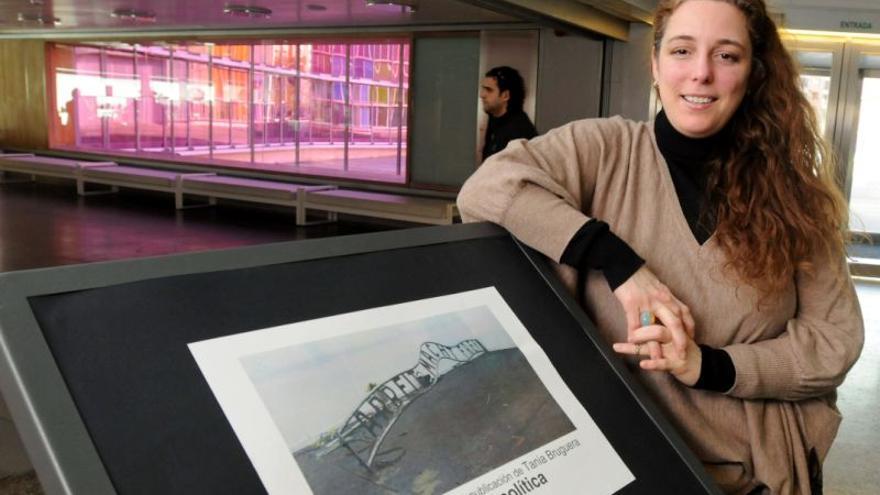
![]() 14ymedio, Havana, 19 April 2021 — The Cuban government unleashed a repressive wave against independent activists, artists and journalists this weekend, while the Eighth Congress of the Communist Party of Cuba was held at the Palace of Conventions in Havana.
14ymedio, Havana, 19 April 2021 — The Cuban government unleashed a repressive wave against independent activists, artists and journalists this weekend, while the Eighth Congress of the Communist Party of Cuba was held at the Palace of Conventions in Havana.
The artist Tania Bruguera, who had planned to give an online conference last Friday on art, activism and censorship in Cuba for Harvard University, had her internet service cut off by the State telecommunications company, Etecsa, minutes before the event. Therefore, the talk had to be rescheduled.
“The conversation with Harvard has not been canceled: it has been postponed, and when it is done, I will no longer have to start by explaining to the public that the Government of Cuba is a dictatorship and that the telecommunications company Etecsa is a department of State Security. Everyone will know,” Bruguera said in a column for Hypermedia Magazine.
This Sunday, a representative of the Embassy of the Netherlands in Havana, Bastiaan Engelhard, visited the journalist Luz Escobar and the artist Julio Llopiz-Casal, on a day on which both had State Security surveillance on their homes and, in the case of Escobar, her telephone line was without service.
During the meeting, the diplomat was interested in current Cuban issues and the challenges of civil society.
The diplomat’s gesture was seen by many human rights defenders on the island as a show of support for those who today suffer any kind of repression by the Government, with the aim of silencing them or preventing them from doing their job.
On that same day, the executive director for the Americas of Human Rights Watch (HRW), José Miguel Vivanco, asked Havana to end its human rights violations.
“While the congress of the Communist Party is being held, the artists of the San Isidro Movement are under surveillance and deprived of liberty in their own homes. We demand the cessation of these serious and repeated human rights violations,” Vivanco wrote on his Twitter account, “Why is the regime so afraid of independent artists and journalists?”
Vivanco mentioned the cases of Tania Bruguera, Carolina Barrero, Amaury Pacheco, Héctor Luis Valdés Cocho, Camila Acosta and Luz Escobar. “All my solidarity to them,” he said.
Similarly, the organizers and participants of the First Citizen Conference, organized by the Cuba en Plural platform and scheduled to take place virtually on April 18, 19 and 20, also remained under police surveillance and faced telephone service cuts.
The event will be held on Zoom and according to a statement issued by the platform, “prominent exponents will participate who, from a citizen perspective, will provoke a conversation about the future of Cuba.”
The text is signed by María Elena Mir Marrero and Zuleydis Pérez Velázquez, from the Network of Community Leaders; Manuel Cuesta Morúa and José Díaz Silva, from Propuesta2020; Dariem Columbié Grave de Peralta, from the Otro18 Platform, and María Mercedes Benítez Rodríguez, from Citizens Observers of Electoral Processes.
On Sunday, Luis Manuel Otero Alcántara was detained again for a few hours when he tried to leave his home, which had been besieged by the political police for almost a month. The artist, coordinator of the San Isidro Movement, asks that the works of art of his authorship that State Security stole last Friday, when they raided his house, be returned to him.
____________
COLLABORATE WITH OUR WORK: The 14ymedio team is committed to practicing serious journalism that reflects Cuba’s reality in all its depth. Thank you for joining us on this long journey. We invite you to continue supporting us by becoming a member of 14ymedio now. Together we can continue transforming journalism in Cuba.
